Back to Contents
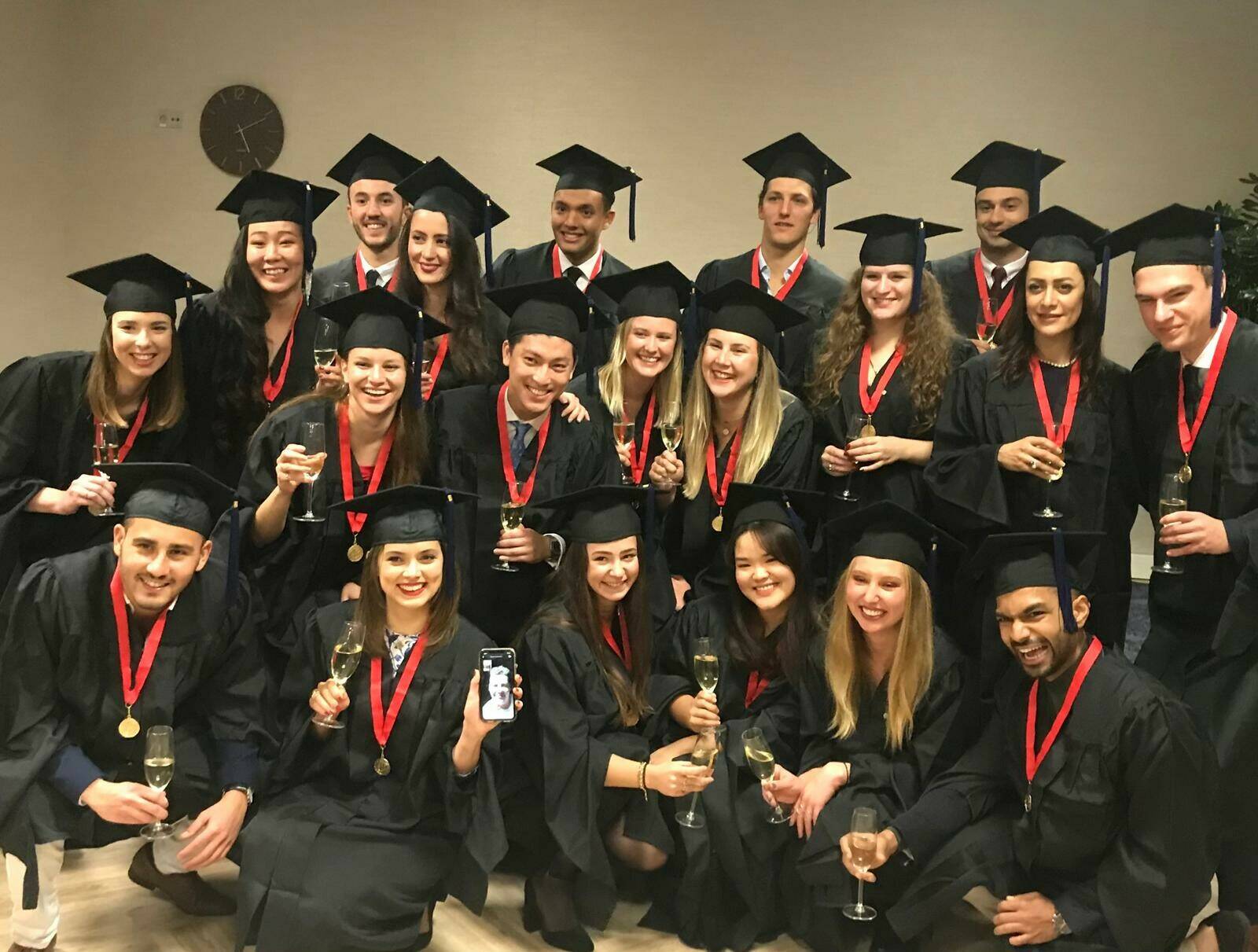
Read Standard
Panel Conclusion 2018
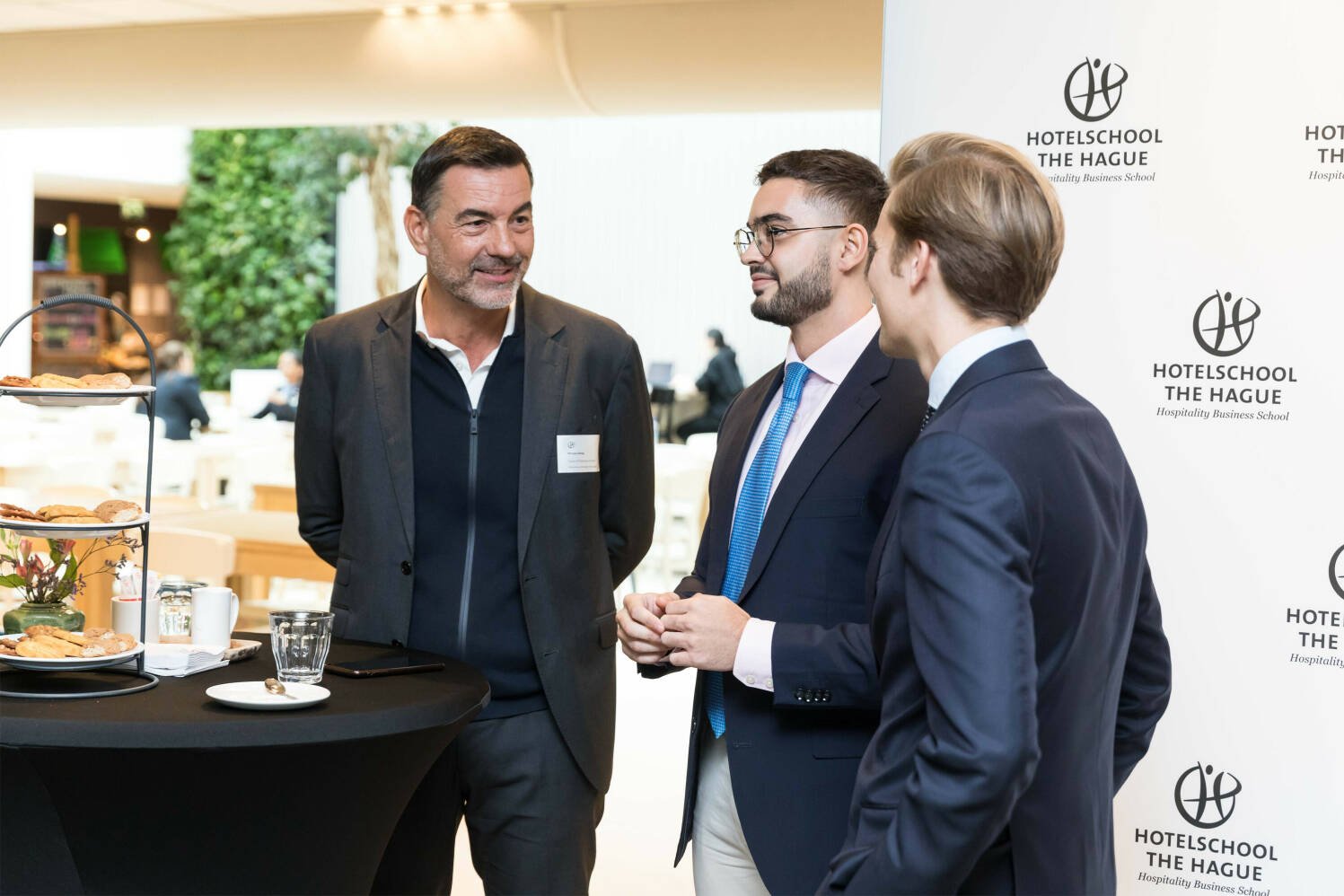
Milestones Completed
The MBA executes a programme that facilitates students in acquiring the Professional Competencies, which culminates in the Consultancy Project and finding relevant work after graduation.
Achieved End Level
The MBA has a constructively aligned programme in place. In this way, reassuring delivering graduates that live up to the five Professional Competencies (PCs) forming the starting and end point of the programme, being on Master level. All work done and substantiated at the other standards is leading to this result. Over the past years, significant improvements have been made on e.g. research, technological innovation in the service industry, the consultancy process and assessment. These have been described in more detail in the reflections on standards 2, 3, 9 and 10. We are confident that our graduates achieve the intended learning outcomes/ PCs.
Reaching the required end level of the MBA projects was checked by reviewers who are members of the ICE community. Their review, which was commissioned by Hotelschool The Hague, was positive: "Projects meet academic and professional standards in their conceptual, execution, analysis and delivery at the set level relative to international best practice." The Exam Committee of Hotelschool The Hague confirmed the conclusion that the MBA assesses students at Master’s level (NLQF level 7) and according to the Professional Master Standard of the Netherlands Association of Universities of Applied Sciences.
Both the alumni and the professional field experience the Consultancy Project as a valuable final masterpiece creating a smooth connection between the MBA Professional Competencies targeted and the challenges and opportunities of the professional field of hospitality and service excellence.
“Personally, the MBA [project] has really helped me to learn create a fruitful network of meaningful connections with professionals in Amsterdam. Which has, and is still, serving as a very strong foundation to start my career here and quickly finding interesting job opportunities.” Joe Chemali, 2021
“The MBA [project experience] added value when I started my first manager/supervisor position. That is when you realize that practice is important, but a mix of practice and theory is very helpful in a management position.” Benoit Fichaux, 2015
“At the end of my final consultancy project, I was invited to share the findings of my project to the Accor Headquarters in Paris. This opportunity allowed me to engage with and discuss my research in-depth with a remarkable group of high positioned professionals.” Hoofria Kasad, 2022
Consultancy Project (thesis); the stepping stone into the professional field
In this self-evaluation report, there is a relatively strong focus on the quality of the master thesis (consultancy project reports) and more specifically on the actions taken in the last few years to improve both the process as well as the quality of the final output: the consultancy project report. Process wise, an earlier start of the Consultancy Project and the embedding of clear milestones and deliverables facilitate an improved Consultancy Project management process. A more explicit integration of the master level criteria in the grading rubric of the final consultancy report, more weight on the quality of research executed at the expense of the quality of the presentation during the final defence, and a more transparent justification of the grade given were incorporated, and finally, Business R&C Proposal course was enriched with a Design Based Research component.

Industry Perspective on the MBA Graduates
The industry perspective on the graduates of the MBA programme is just as invaluable. It works both ways. The perspective of the professional field through interaction with both students and graduates of the MBA serves as a bridge between the more academic world and real-world application. The input and perspective of the work field help the programme and the students to stay current and align the curriculum with the current needs of the focal markets. The fact that most MBA courses are taught by a high number of industry professionals is a wonderful enabler of this vision.
“Shubham was a great collaborator and exceeded our expectations for this consultancy project. We are pleased to have had this opportunity to work together and would be eager to design another research project in the future. Shubham was very clear with setting expectations, guidelines, processes and the analysis of the results. As Shubham key contact I felt up-to-speed, informed and actively involved in the process during all stages of the project. We are pleased with the results; they will be a key feature in our future proposals for functional music in the hospitality industry.” Brian Barth of massivemusic.com
“Elliot has worked on a strategic assignment for Aegon’s Digital and Interaction department. We asked Elliot to design a maturity scan. That had to be built on a theoretical framework that helps us create a future roadmap for increasing the maturity of our teams. Elliot provided exactly what we asked. Elliot is focused well on his assignment and didn’t get ‘lost’ in our complex organization. We are very happy with the result and the way Elliot presented himself in the company.” Bastiaan Hilferink Aegon MT Customer Interaction and CX Lead
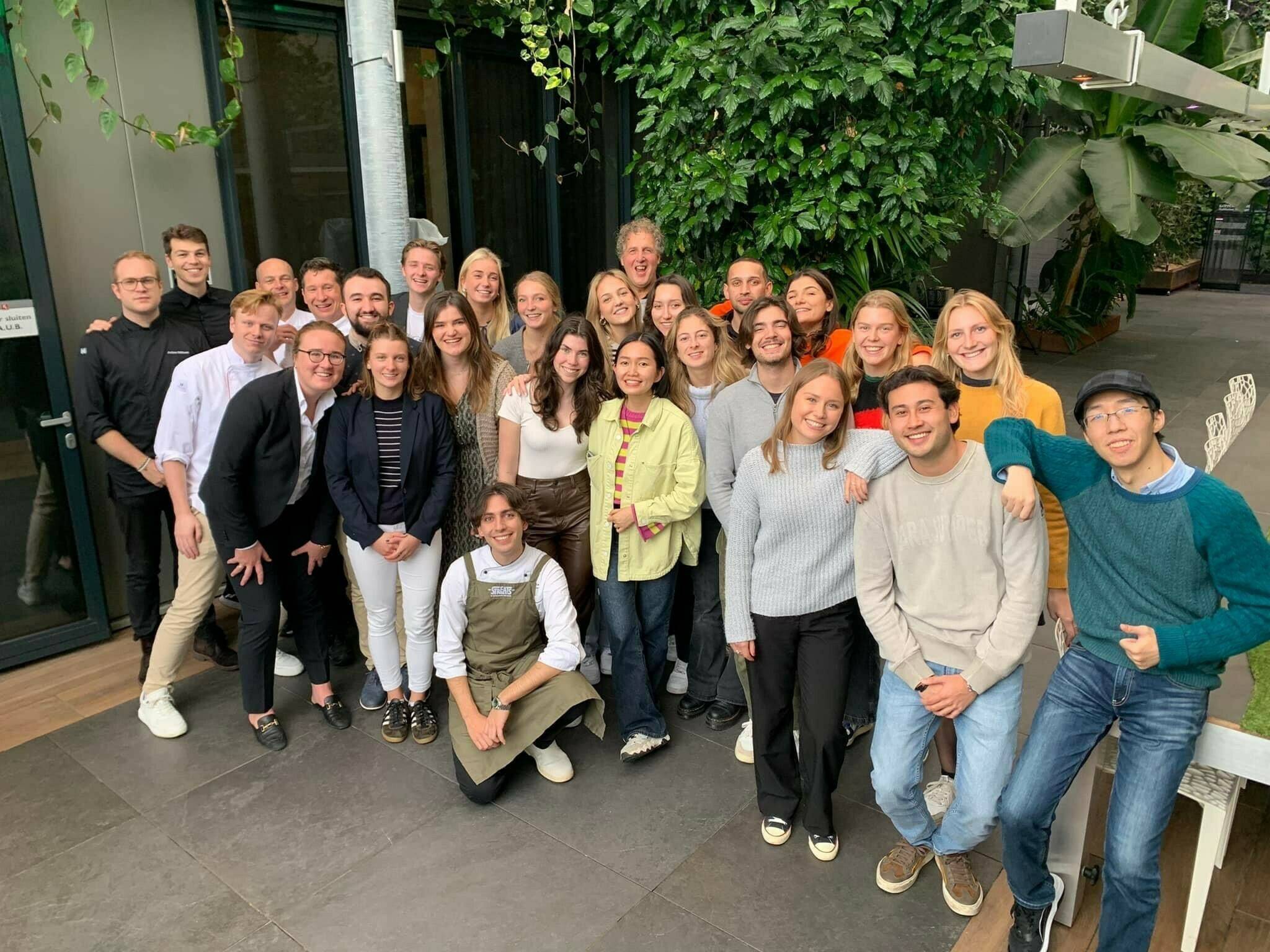
For programme management, the perspective of the professional field serves as a compass for delivering sought-after graduates. The insight of current and future employers is for example shared with programme management through the overarching Industry Advisory Board of Hotelschool The Hague. An example of this connection is the annual MBA guest lecture of Mr. Erik Tengen of Oaky, member of the Junior Industry Advisory Board Next Gen. The industry perspective is most tangible on an almost daily basis through the frequent interactions with commissioners, guest lecturers and the places of work after graduation.
Post-MBA Employability
Data analysed on industries that MBA Alumni are currently employed in, proved that 30.4 % of the alumni are employed within the hospitality field. This verifies that the intention and focus of the MBA course is realised and verified by their current career path. 18% of the MBA alumni are following their careers at IT& Software sector. The remaining industries comprise of industries such as retail, consultancy, retail, marketing & communications, finance. A full overview can be seen in the pie chart below, which is a summary of MBA Alumni current employment per industry, from inception year 2014 to 2022. Please review the employability overview for more details
Graduates largely go into managerial roles, but also take up specialist roles, for instance in hospitality experience and service design. Within our MBA alumni group, we do not detect a tendency to continue with further studies, but perhaps the Professional Doctorate pilot could prove to be appealing.
We stay in close contact with our graduates and aim to make use of their expertise and access to the industry so that future intakes can benefit from their experience. Alumni of the MBA are welcomed back into the programme during their later career as course commissioner or guest speaker, enabling them to be a valuable stepping stone for the careers of more recent graduates.
Overall, a humble summary of the programme management’s impression of the industry perspective on the students and alumni after almost 10 years of daily interaction would be the following:
The impact of our alumni extends beyond their individual positions and careers. They are said to inspire and motivate colleagues and peers to join the perpetual journey towards a more impactful and improved service excellence trajectory. Because of the many real life learning projects, interacting on multiple levels with professional stakeholders, they are considered multi-players that are not only knowledgeable on analyzing what to improve, but also know how to improve it. This way, they are not only playing their role in reshaping the way businesses operate towards their clients but also demonstrate that providing the best possible service design and running a healthy business go hand in hand.
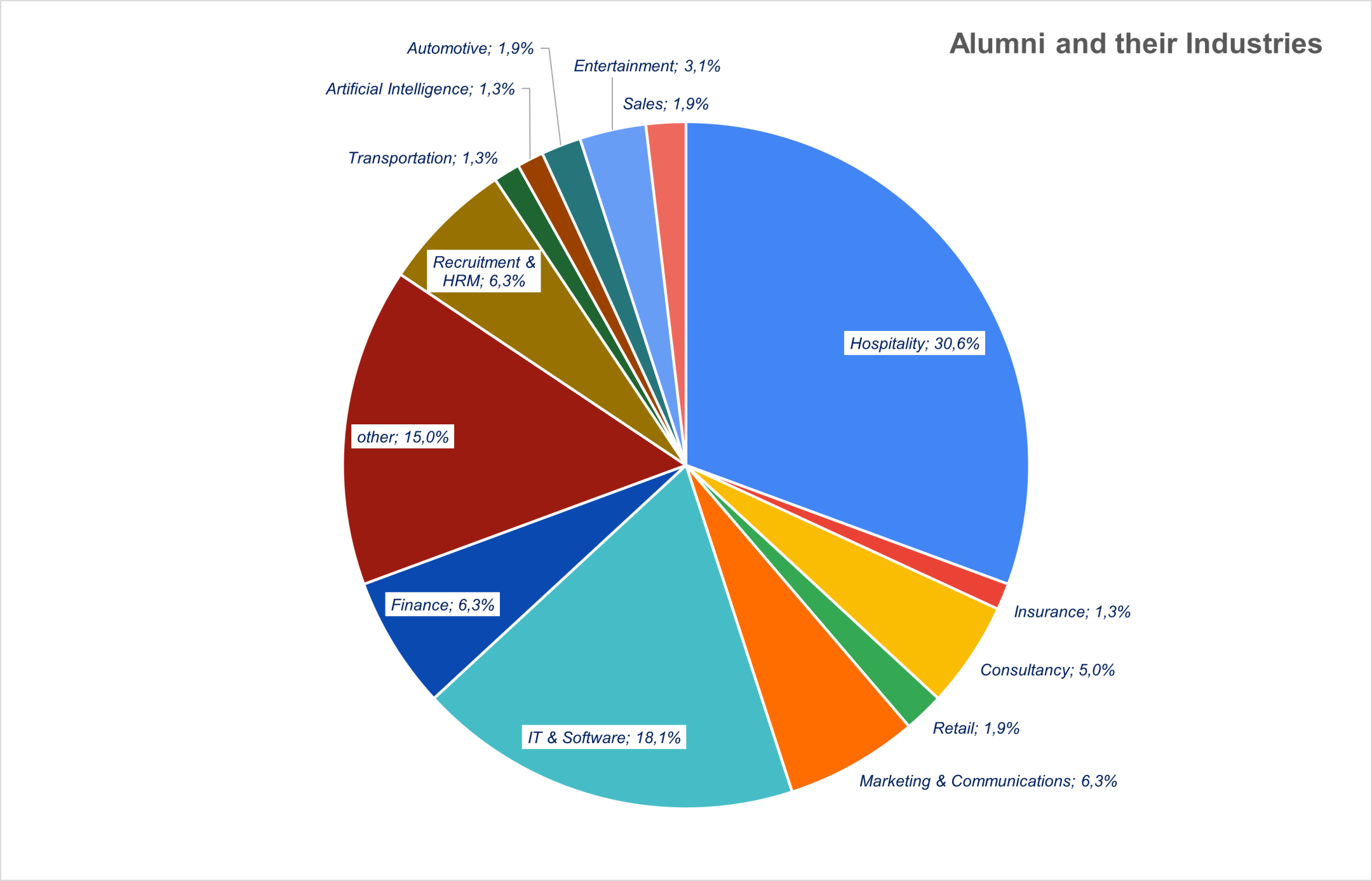

Back to top
Back to Contents

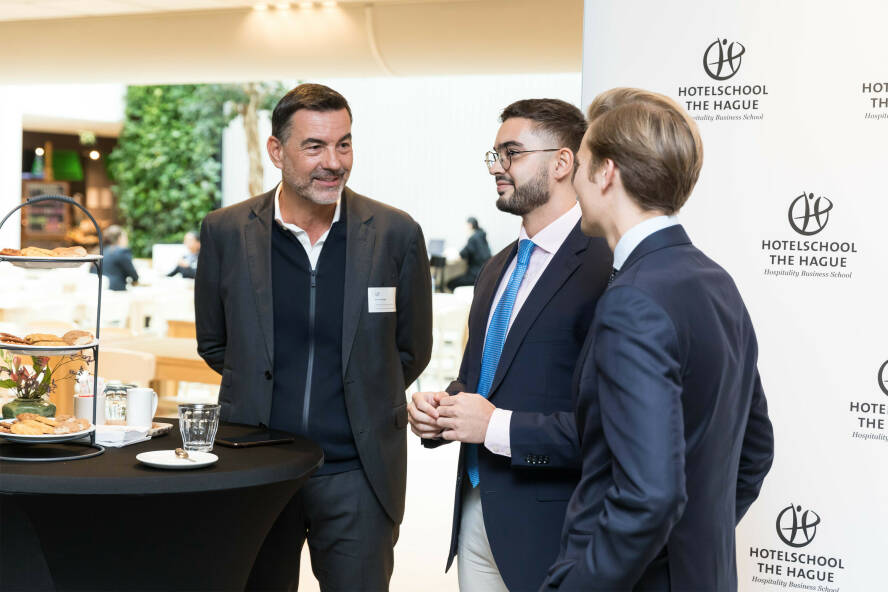
The MBA executes a programme that facilitates students in acquiring the Professional Competencies, which culminates in the Consultancy Project and finding relevant work after graduation.
Milestones Completed
Achieved End Level
The MBA has a constructively aligned programme in place. In this way, reassuring delivering graduates that live up to the five Professional Competencies (PCs) forming the starting and end point of the programme, being on Master level. All work done and substantiated at the other standards is leading to this result. Over the past years, significant improvements have been made on e.g. research, technological innovation in the service industry, the consultancy process and assessment. These have been described in more detail in the reflections on standards 2, 3, 9 and 10. We are confident that our graduates achieve the intended learning outcomes/ PCs.
Reaching the required end level of the MBA projects was checked by reviewers who are members of the ICE community. Their review, which was commissioned by Hotelschool The Hague, was positive: "Projects meet academic and professional standards in their conceptual, execution, analysis and delivery at the set level relative to international best practice." The Exam Committee of Hotelschool The Hague confirmed the conclusion that the MBA assesses students at Master’s level (NLQF level 7) and according to the Professional Master Standard of the Netherlands Association of Universities of Applied Sciences.
Both the alumni and the professional field experience the Consultancy Project as a valuable final masterpiece creating a smooth connection between the MBA Professional Competencies targeted and the challenges and opportunities of the professional field of hospitality and service excellence.
“Personally, the MBA [project] has really helped me to learn create a fruitful network of meaningful connections with professionals in Amsterdam. Which has, and is still, serving as a very strong foundation to start my career here and quickly finding interesting job opportunities.” Joe Chemali, 2021
“The MBA [project experience] added value when I started my first manager/supervisor position. That is when you realize that practice is important, but a mix of practice and theory is very helpful in a management position.” Benoit Fichaux, 2015
“At the end of my final consultancy project, I was invited to share the findings of my project to the Accor Headquarters in Paris. This opportunity allowed me to engage with and discuss my research in-depth with a remarkable group of high positioned professionals.” Hoofria Kasad, 2022

Consultancy Project (thesis); the stepping stone into the professional field
In this self-evaluation report, there is a relatively strong focus on the quality of the master thesis (consultancy project reports) and more specifically on the actions taken in the last few years to improve both the process as well as the quality of the final output: the consultancy project report. Process wise, an earlier start of the Consultancy Project and the embedding of clear milestones and deliverables facilitate an improved Consultancy Project management process. A more explicit integration of the master level criteria in the grading rubric of the final consultancy report, more weight on the quality of research executed at the expense of the quality of the presentation during the final defence, and a more transparent justification of the grade given were incorporated, and finally, Business R&C Proposal course was enriched with a Design Based Research component.
Industry Perspective on the MBA Graduates
The industry perspective on the graduates of the MBA programme is just as invaluable. It works both ways. The perspective of the professional field through interaction with both students and graduates of the MBA serves as a bridge between the more academic world and real-world application. The input and perspective of the work field help the programme and the students to stay current and align the curriculum with the current needs of the focal markets. The fact that most MBA courses are taught by a high number of industry professionals is a wonderful enabler of this vision.
“Shubham was a great collaborator and exceeded our expectations for this consultancy project. We are pleased to have had this opportunity to work together and would be eager to design another research project in the future. Shubham was very clear with setting expectations, guidelines, processes and the analysis of the results. As Shubham key contact I felt up-to-speed, informed and actively involved in the process during all stages of the project. We are pleased with the results; they will be a key feature in our future proposals for functional music in the hospitality industry.” Brian Barth of massivemusic.com
“Elliot has worked on a strategic assignment for Aegon’s Digital and Interaction department. We asked Elliot to design a maturity scan. That had to be built on a theoretical framework that helps us create a future roadmap for increasing the maturity of our teams. Elliot provided exactly what we asked. Elliot is focused well on his assignment and didn’t get ‘lost’ in our complex organization. We are very happy with the result and the way Elliot presented himself in the company.” Bastiaan Hilferink Aegon MT Customer Interaction and CX Lead

For programme management, the perspective of the professional field serves as a compass for delivering sought-after graduates. The insight of current and future employers is for example shared with programme management through the overarching Industry Advisory Board of Hotelschool The Hague. An example of this connection is the annual MBA guest lecture of Mr. Erik Tengen of Oaky, member of the Junior Industry Advisory Board Next Gen. The industry perspective is most tangible on an almost daily basis through the frequent interactions with commissioners, guest lecturers and the places of work after graduation.
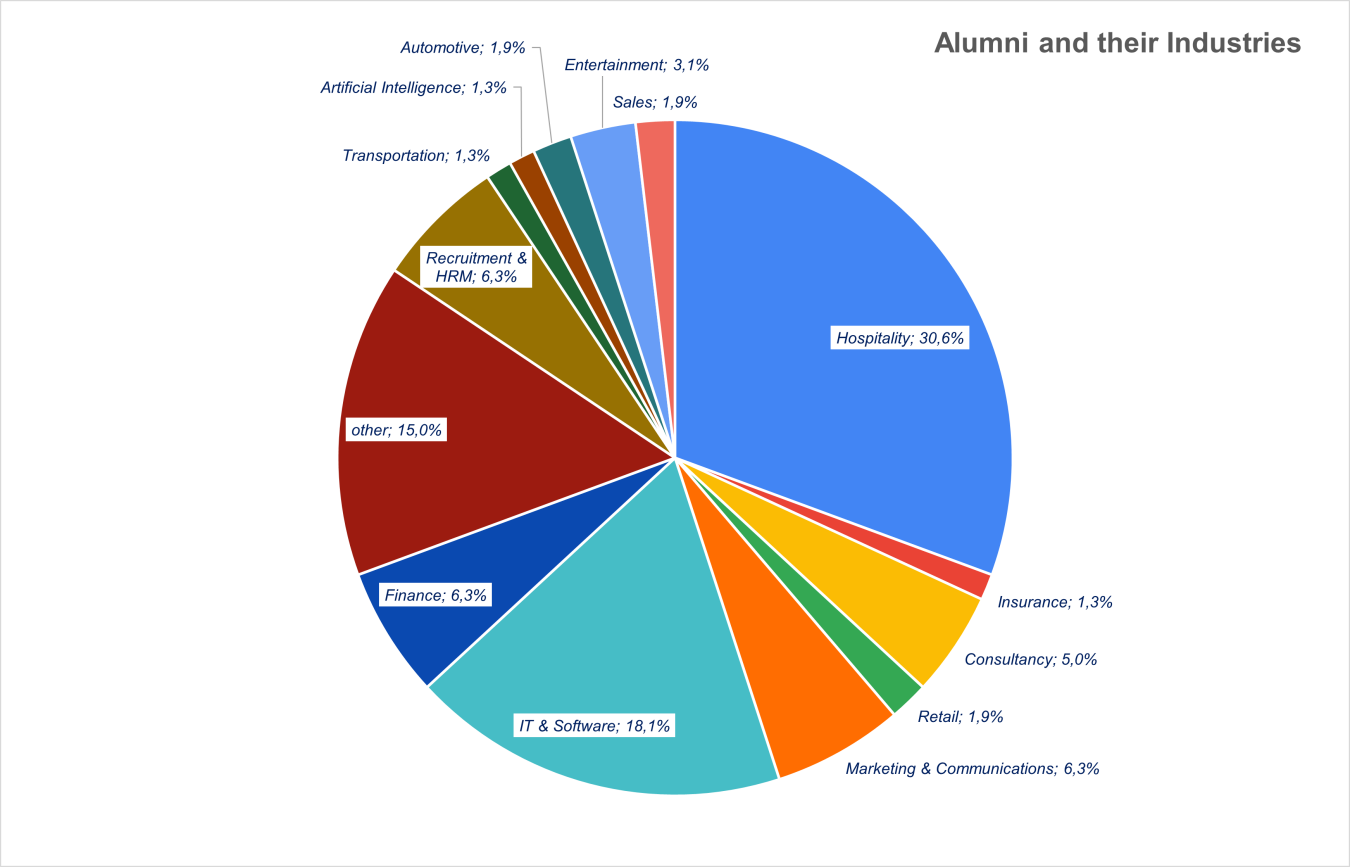
The impact of our alumni extends beyond their individual positions and careers. They are said to inspire and motivate colleagues and peers to join the perpetual journey towards a more impactful and improved service excellence trajectory. Because of the many real life learning projects, interacting on multiple levels with professional stakeholders, they are considered multi-players that are not only knowledgeable on analyzing what to improve, but also know how to improve it. This way, they are not only playing their role in reshaping the way businesses operate towards their clients but also demonstrate that providing the best possible service design and running a healthy business go hand in hand.
Scroll
Post-MBA Employability
Data analysed on industries that MBA Alumni are currently employed in, proved that 30.4 % of the alumni are employed within the hospitality field. This verifies that the intention and focus of the MBA course is realised and verified by their current career path. 18% of the MBA alumni are following their careers at IT& Software sector. The remaining industries comprise of industries such as retail, consultancy, retail, marketing & communications, finance. A full overview can be seen in the pie chart below, which is a summary of MBA Alumni current employment per industry, from inception year 2014 to 2022. Please review the employability overview for more details
Graduates largely go into managerial roles, but also take up specialist roles, for instance in hospitality experience and service design. Within our MBA alumni group, we do not detect a tendency to continue with further studies, but perhaps the Professional Doctorate pilot could prove to be appealing.
We stay in close contact with our graduates and aim to make use of their expertise and access to the industry so that future intakes can benefit from their experience. Alumni of the MBA are welcomed back into the programme during their later career as course commissioner or guest speaker, enabling them to be a valuable stepping stone for the careers of more recent graduates.
Overall, a humble summary of the programme management’s impression of the industry perspective on the students and alumni after almost 10 years of daily interaction would be the following:
The impact of our alumni extends beyond their individual positions and careers. They are said to inspire and motivate colleagues and peers to join the perpetual journey towards a more impactful and improved service excellence trajectory. Because of the many real life learning projects, interacting on multiple levels with professional stakeholders, they are considered multi-players that are not only knowledgeable on analyzing what to improve, but also know how to improve it. This way, they are not only playing their role in reshaping the way businesses operate towards their clients but also demonstrate that providing the best possible service design and running a healthy business go hand in hand.
Panel Conclusion 2018
Standard 11: Achieved Learning Outcomes
The master theses show that the students achieve the intended master level.

Back to top
